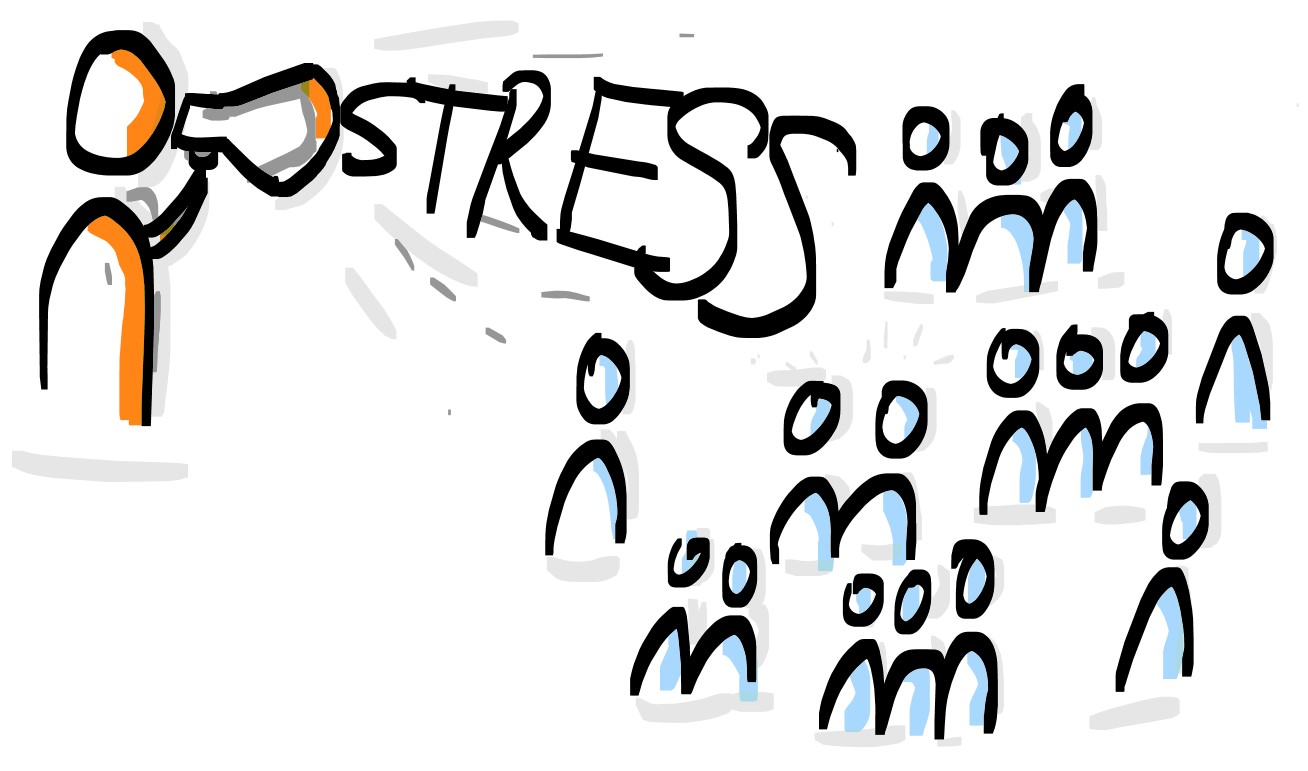A rather mean characteristic of burnout and exhaustion depression is that it (apparently) comes as a surprise to those directly affected – although the big crisis has often been looming for a long time, admittedly without those affected seeing or wanting to see it. All of a sudden, nothing works anymore. And without any explanation as to why. Therefore, here is some background information for all those who are beginning to deal with the issue.
For more information, see the notes below. And also make sure to check with your doctor!

Burnout is…
…a condition
that manifests itself through physical and emotional malaise and is often associated with a deep personal crisis of meaning. Burnout can build up and drag on for years – with alternating good and bad phases. The cause is almost always one or more prolonged periods of stress, as a result of which the metabolism is disturbed and patterns of thought and action that are actually helpful take on a life of their own and thus have an unhealthy effect. This starts a process that has a lasting negative effect on the physical, mental and social balance of those affected. At first, this happens very slowly and unnoticed, but as it progresses, it becomes faster and stronger until – in extreme cases – a physical and/or mental breakdown occurs.
…a collective term
for many pathological physical and psychological conditions. Experts have been discussing for some time now how exactly to define burnout as an illness and how best to deal with it.
All that matters to you at the moment is that you are in a bad healthy state! Go to the doctor!
… Associated with a holistic state of exhaustion
mentally and/or physically. Often this state is described as “total”, and it usually results in some form of depression.
Therefore – and this is important – burnout also has a self-destructive, life-threatening suicidal component
… A result of prolonged stress
Regardless of external stressors, stress perception is highly dependent on the individual. It therefore also depends on the individual what is needed, and for how long, to burn out pathologically.

… A reaction to periods of overwork
Burnout is caused by excessive, mostly unconscious physical, mental and social stress or neglect as a reaction to stress and prolonged periods of overwork. In this respect, burnout is due to external circumstances, but it nevertheless arises from one’s own individual patterns.
Examples:
- Strong and alppointments and contacts
Metabolism is crucial for the brain and body
- In burnout, metabolism is disturbed due to stress, which has different effects, e.g.:
- Mindfulness and concentration decrease.
- Recovery is difficult or no longer possible.
- Permanent fatigue spreads, even several hours of sleep no longer bring recovery.
- “Thinner skin”, increased aggressiveness
- Limited ability to analyze, tunnel vision
- Limited ability to make good decisions
- Overall performance decreases
 At the same time, so-called success patterns take on a life of their own
At the same time, so-called success patterns take on a life of their own
and mostly unconsciously! This refers to certain patterns of thinking, acting, and feeling that have been acquired in the course of one’s life and are now over-represented in the brain. This is why they are used excessively – and mostly unconsciously (!) – in phases of stress and overstrain, e.g.:
- Success thinking: “Only results and performance count!”
- Status thinking: “What will others think?”
- Existential fear: “I have to, otherwise that’ s it!”
- Generalism, idealism: ” You cannot…!”, “If not me, then who?”
- Perseverance: “It’ll be alright!”, “Grit your teeth!”,
- Staying with it: “A lot helps a lot!”
These patterns, which are helpful in specific individual situations and now work almost exclusively, ensure a counterproductive way of dealing with oneself and the situation and make it difficult for those affected to recognise their danger or illness and take necessary steps.
And this despite there often being very clear warning signals from one’s own body and the environment, e.g. persistent and/or recurrent:
- Headache, backache
- Heartburn
- Continuous infections
- Lack of desire and drive
- Exhausted, tired feeling
- Sleep, digestive disorders
- Increased aggressiveness
- Fewer and fewer (private) social contacts
- permanent rumination
- Panic or anxiety attacks
- Hearing loss/tinnitus
- Increased quarrels and conflicts
- Social disengagement, loneliness
If you are wondering whether and to what extent you are affected by burnout: Have you read this far with self-interest? Then it mightbe wise to find out more and take steps if necessary! See a doctor as soon as possible!
Further information
- Telefonseelsorge: 0800/1110111 & 0800/1110222.
- Bundesverband der Angehörigen psychisch Kranker: 01805 950 951, 0228 71 00 24 24 oder seelefon@psychiatrie.de
- www.yourway2life.de: Website der Münchner Burnout-Selbsthilfegruppe. Ausführliche Hinweise zu Hilfsangeboten, Literatur- und Medienhinweise zu Burnout und Depression
- Münchner Bündnis gegen Depression
- www.therapie.de: Webpräsenz des Münchner Vereins Pro Psychotherapie. Sehr informativ, alles zum Thema Psychotherapie (Arten und Formen, Ablauf etc.). Mit Therapeutensuche.
- www.buendnis-depression.de: Deutsches Bündnis gegen Depression
- www.deutsche-depressionshilfe.de: Deutsche Depressionshilfe
- www.depressionsliga.de: Die Deutsche DepressionsLiga e.V. ist eine ehrenamtlich organisierte und bundesweit aktive Patientenvertretung für an Depressionen erkrankte Menschen.
- www.angstselbsthilfe.de: Als Verein organisierte Unterstützung von Menschen mit Angsterkrankung: Information, Beratung und Selbsthilfe bei Angsterkrankungen
- www.nakos.de: Bundesweite Informations- und Vermittlungsinstanz im Feld der Selbsthilfe in Deutschland
- www.suizidpraevention-deutschland.de
Nationales Suizid Präventions Programm für Deutschland. In Zusammenarbeit u.a. mit dem European Network on Suicide Research and Prevention, der Weltgesundheitsorganisatin (WHO) und unter der Beteiligung des Bundesministeriums für Gesundheit.
 At the same time, so-called success patterns take on a life of their own
At the same time, so-called success patterns take on a life of their own